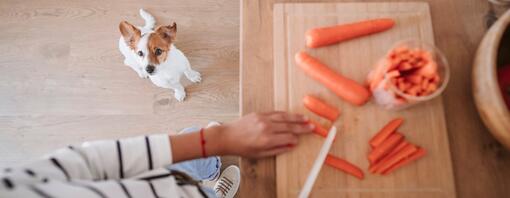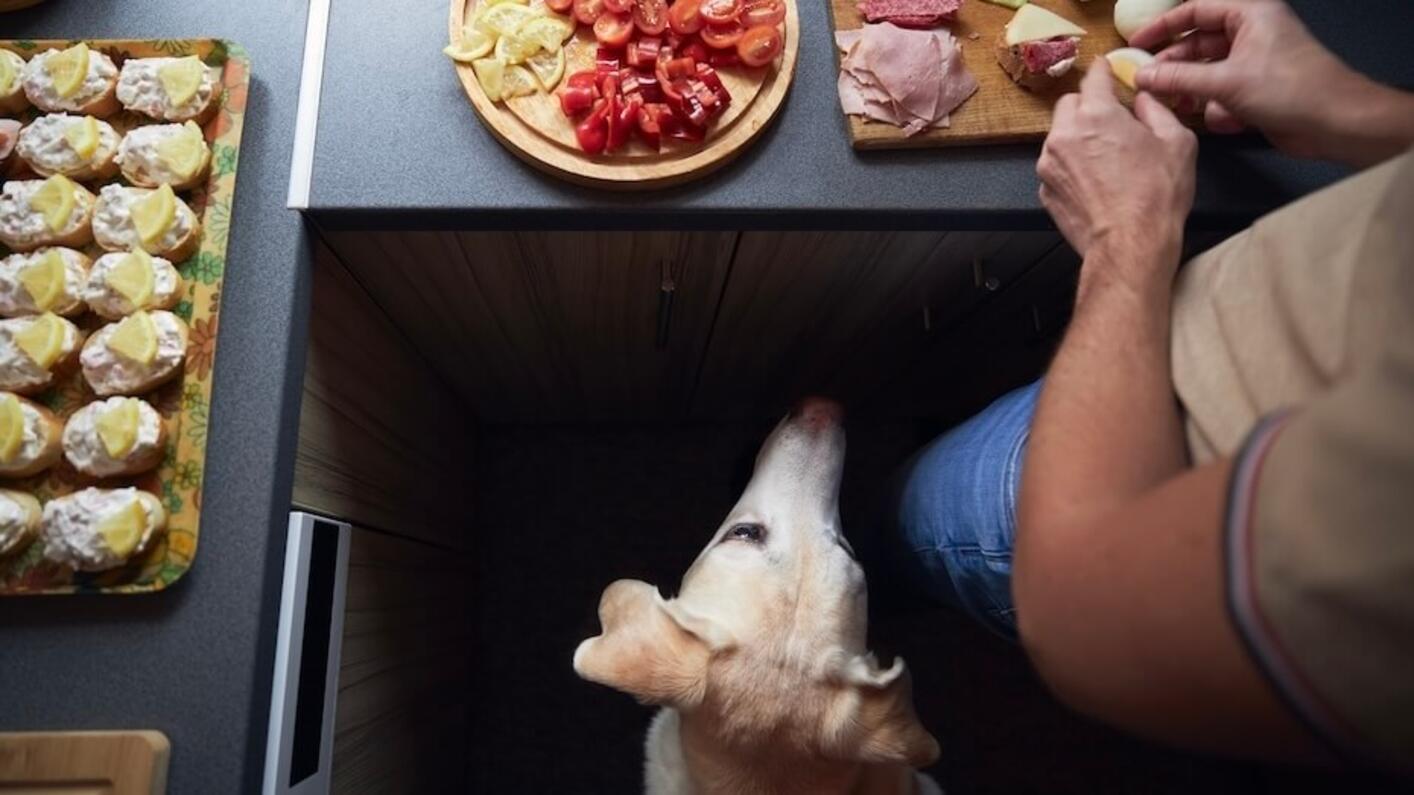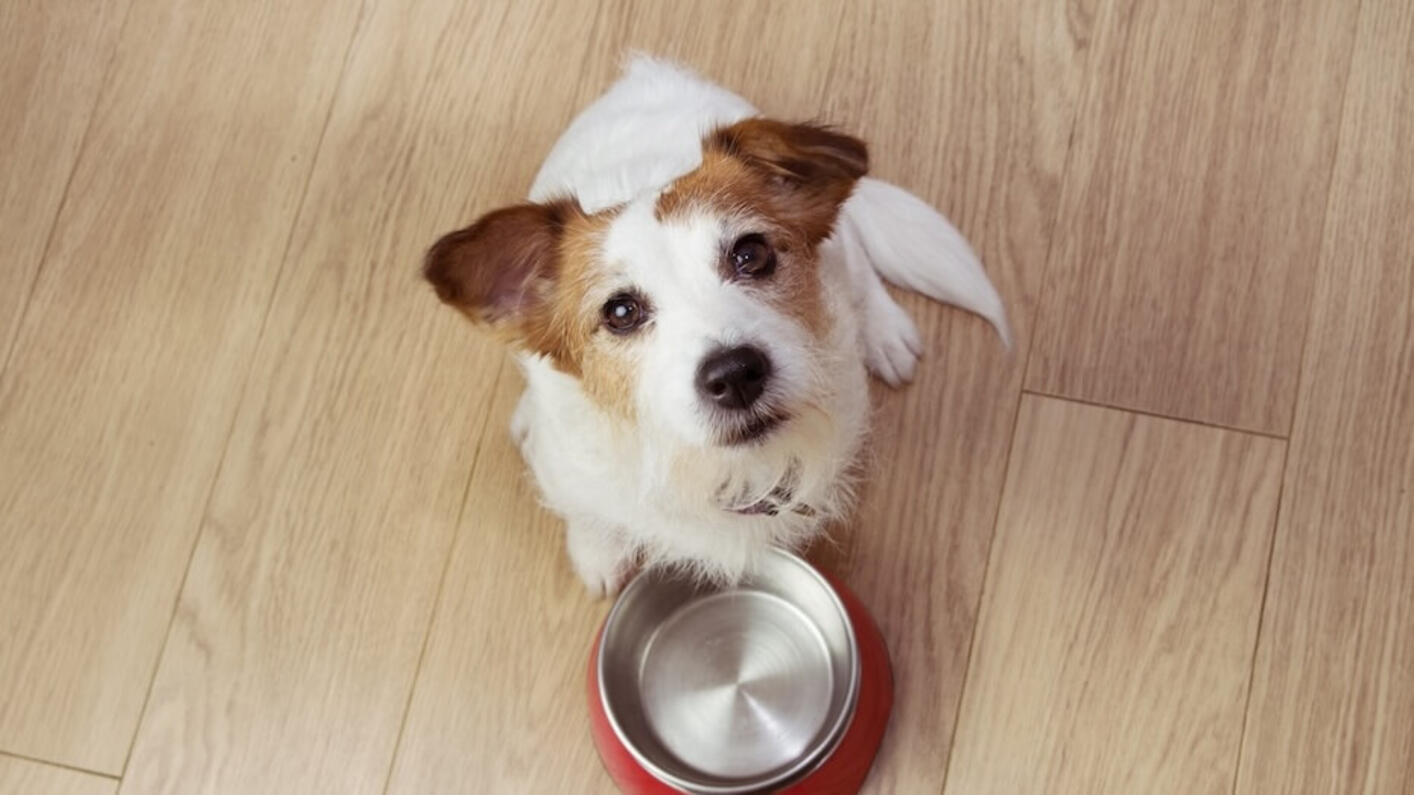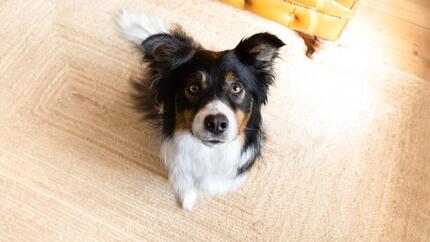
Curious about what human food can puppies eat safely? Or if you want to know more about what foods are unsafe for your furry friends, you’ve come to the right place! This guide outlines the risks of feeding puppies human food while also providing a list of safe options and those to avoid. You'll also find helpful tips on incorporating human foods into your puppy’s diet. Read on for more insights and advice.

What human food can puppies eat safely?
When feeding your puppy, it’s important to offer a balanced and nutritious diet. Here are some human foods that are safe for your puppy to have:
Fruits and vegetables: Puppies can enjoy various fruits and vegetables, but introduce them gradually and in small portions. Safe options include apples (without seeds), bananas, blueberries, carrots, and sweet potatoes. These fruits and vegetables are packed with vitamins and minerals that support your puppy’s overall health.
Protein sources: Protein is essential for your puppy’s growth and development. Opt for lean sources of protein such as cooked (plain) chicken, turkey, or fish. These proteins provide important nutrients like amino acids, which are the building blocks of your puppy’s muscles and tissues.
Dairy products: While puppies can tolerate small amounts of dairy, be cautious as some puppies may be lactose intolerant or have difficulty digesting dairy. If you choose to give your puppy dairy, opt for plain yoghurt or cottage cheese in moderation. These can provide beneficial probiotics and calcium but make sure to ask your vet before giving human probiotic and prebiotic content foods, as dog’s intestinal flora might differ slightly from humans’.
Remember, every puppy is unique. Always consult your veterinarian before introducing any new foods into your puppy’s diet. Ensure the foods offered are fresh, properly cooked, and free from any seasonings or additives that may harm your puppy’s health.

Risks and precautions
Feeding your puppy human food requires caution due to the potential health risks associated with certain foods. While sharing your meal might be tempting, prioritising your puppy’s well-being is essential.
Also remember that, even when human food can be safe, we need to avoid “the human touch” when giving it to our dogs: salt, condiments, some spices and sauces should be avoided.
When introducing new foods to your puppy, do so gradually to avoid digestive upset. Start with small amounts of the new food alongside their regular puppy food, gradually increasing the proportion over about a week.
Common toxic foods for puppies
Certain foods safe for humans can be toxic to puppies. These include chocolate, onions, garlic, grapes, raisins, and avocados. These foods contain substances harmful to your puppy’s health and may lead to serious conditions such as kidney failure or anaemia. It’s best to avoid feeding these foods to your puppy altogether.
Foods that can cause digestive issues
While some human foods may not be toxic, they can still cause digestive issues in puppies. Spicy or greasy foods, dairy products, and foods high in fat can lead to upset stomachs, diarrhoea, or even pancreatitis. Stick to a balanced and nutritionally complete puppy food to keep your puppy’s digestive system healthy.
Tips for feeding human food to puppies
Feeding human food to puppies can offer variety and extra nutrients, but it’s essential to take precautions to ensure their health and well-being. Here are some tips to help you safely incorporate human food into your puppy’s diet:
Portion control and frequency: When feeding human food to your puppy, portion control is key. While certain human foods can be beneficial, they should only make up a small percentage of their overall diet. Too much human food can lead to nutritional imbalances and weight gain. Offer small portions of human food as occasional treats rather than a regular part of their meals.
Balancing human food with regular puppy diet: Human food should never replace your puppy’s regular diet. Commercial puppy food is specifically formulated to meet their nutritional needs, including the right balance of protein, carbohydrates, and essential vitamins and minerals. Use human food as a supplement to their regular diet, ensuring it complements their nutritional requirements rather than replacing them entirely.
Preparing human food for puppies safely: Research which human foods are safe for puppies and which should be avoided. Always consult with your veterinarian before introducing new human foods to your puppy’s diet to ensure their safety.
Further resources and advice
When it comes to ensuring your puppy’s nutrition is on track, consulting with a vet is always a wise decision. Vets are experts in animal health and can provide valuable guidance tailored specifically to your puppy’s needs. They can assess your puppy’s growth, health condition, and dietary requirements to recommend the best feeding plan.
Remember, always introduce new foods gradually and monitor your puppy’s reaction. If you have any concerns about introducing human food to your puppy’s diet, consult with your vet for personalised advice.
Now that you know what human food can puppies eat, learn more about a dog’s optimal diet by reading this article on Dog Nutrition for a Balanced Diet.


